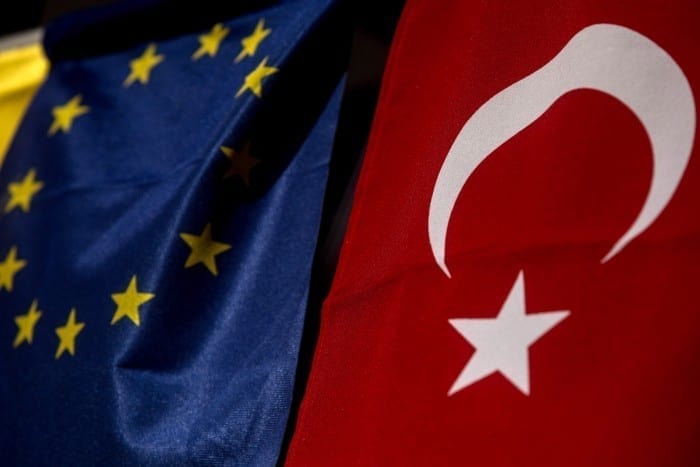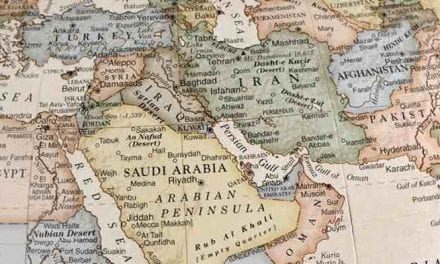By Faisal al-Yafai, Al-arabiya
In September of last year, as Germany’s election drew to a close, Angela Merkel went head to head in a TV debate with her main rival Martin Schulz. As expected, they clashed on the country’s economic outlook and what to do about the migrant crisis that has severely affected Germany. But on one topic, they were curiously aligned: Turkey.
Turkey, Schulz said, had “crossed all the red lines” and if elected chancellor he would end talks with the country on European Union accession. Merkel agreed: Turkey should not be a member of the EU and the talks should be stopped. For an election debate, there was, on this topic, curiously little debate.
Fast-forward four months and Turkey’s president Recep Tayyip Erdogan was in Paris last weekend, seeking to reset ties with Europe after a difficult year. Instead, he was told by French president Emmanuel Macron that there was no more chance of Turkey joining the EU. It was time, Macron said, to end the hypocrisy of pretending there could be an advance towards membership.
It is not yet clear whether Macron was speaking for the EU or merely voicing his own opinion. But after such firm language from the EU’s two most important leaders, it is possible the door is shut. If so, it will close a significant chapter in Turkish political history: EU membership has been the guiding principle behind political and economic reforms for the past two decades.
More than that, however, it will send completely the wrong signal to capitals beyond Ankara. Excluding Turkey from the EU is a dangerous mistake, one that could lead to violence flaring up in the most troubled of Europe’s regions.
For a long time, this nationalism has been constrained, first by the memory of the wars of the Balkans in the 1990s, and then by the possibility of EU membership
Faisal al-Yafai
‘Waiting outside the door’
At his meeting in Paris, Erdogan attacked the EU for leaving his country “waiting outside the door”. “We cannot continuously ask the EU: ‘Please take us too’”, he told a news conference, warning that the country was getting “tired” of the slow process.
In one sense, Turkey is right to be tired. The country applied for associate membership of the European Economic Community, the precursor to the European Union, in 1959, a year after the EEC was formed. (To put that in context, the United Kingdom didn’t apply for two more years.)
Since it became a candidate in 1999, Turkey has watched 12 other countries join. And yet, after all those meetings and debates and reforms, Turkey is back where it started, being offered a “privileged” partnership, of the sort that Germany wanted to give Ankara back in 2002.
For sure, Erdogan has played his cards badly, both alienating European leaders and clamping down on freedoms at home. But Turkey is not Erdogan alone. The relationship between the EU and Turkey predates his presidency and will outlive it. Nor will excluding Turkey impact that country alone. There are other capitals watching what happens – and they, too, have their own volatile politics to contend with.
Apart from Turkey, there are four other candidate countries negotiating for EU membership and two potential candidates. Crucially, all are in the Balkans, the most volatile region in Europe. And this is where the danger for Europe comes.
Because these candidate countries – Albania, Macedonia, Montenegro and Serbia – and the potential candidates of Bosnia and Kosovo (which is not universally recognized as a country) have all built a pathway to the European Union into their politics. If that pathway is blocked for Turkey, the belief will be that it will also be blocked for those countries. And in such an unstable – and historically volatile – part of Europe, the repercussions could be serious.
Nationalism and populism
Every one of the four candidate countries has within their political systems politicians looking to exploit nationalism and populism. And there is no greater target for populists than the EU. In 2016, the pro-European prime minister of Montenegro Milo Dukanovic faced a coup attempt – he pointed the figure at Russia, which has backed anti-EU nationalist parties inside Montenegro.
Next door in Albania, the pro-EU prime minister Edi Rama has faced protests. His main rival, the opposition leader Lulzim Basha, has seized on EU demands for reform as an infringement of the sovereignty of the country and publicly referred to EU demands in scatological terms.
In Serbia, surveys consistently show more citizens want to ally with Russia than join the European Union. And just this week, a UK parliamentary report on the Balkans warned that support for EU membership was in decline across the region, while Russian influence was expanding.
For a long time, this nationalism has been constrained, first by the memory of the wars of the Balkans in the 1990s, and then by the possibility of EU membership. But just as Erdogan has warned that Turkey is tired of waiting, so these countries are getting restless, tired of waiting in a queue that never moves. Populism is rising and while there are some politicians seeking to hold it back, there are others looking to exploit it.
This is the real danger for Europe. It is not the act of excluding Turkey from the EU that is so problematic, so much as the message. If Balkan countries conclude that Europe is closed, they will turn elsewhere, either to Russia, or toward reigniting old feuds within and without their borders. Shutting the door on Ankara could send shock waves throughout the Balkans – and beyond.
_______________________________
Faisal al-Yafai is an award-winning journalist, essayist and playwright. He has been an investigative journalist for The Guardian in London and a documentary journalist for the BBC. Al-Yafai has reported from across the Middle East, from Eastern Europe, Asia and Africa. He served as a Churchill Fellow in Lebanon and Indonesia. A well-known public speaker, al-Yafai is a frequent guest on television networks such as CNN, the BBC and France 24.



















